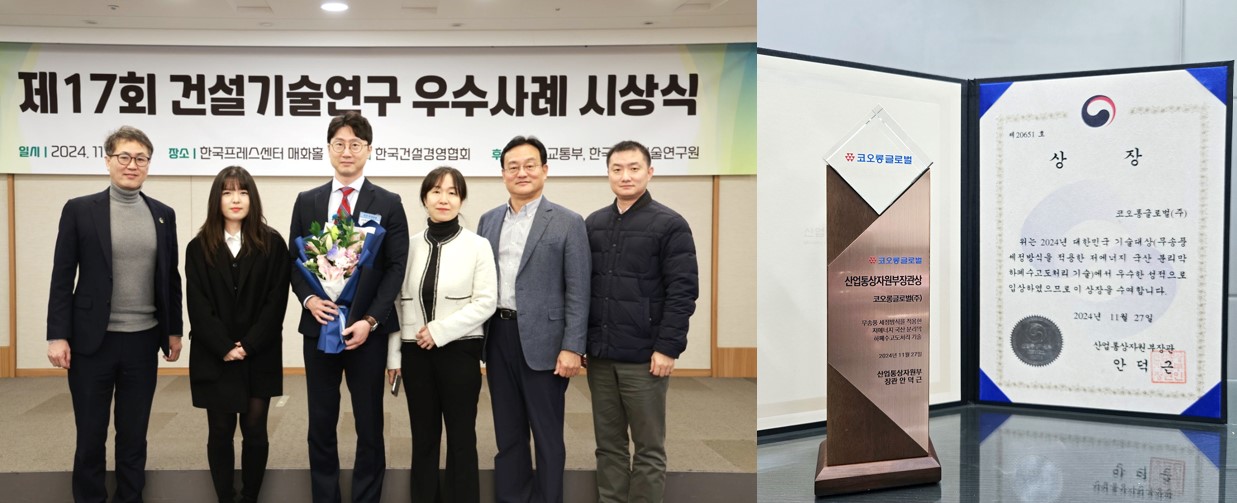Kolon Life Science presents poster on preclinical results of KLS-3021 for squamous cell carcinoma at ASGCT conference in the US
KOLON Life Science
2025.05.20
▷ Attracted attention from academia and industry by presenting the possibility of treating squamous cell carcinoma at ASGCT in the US.
▷ Confirmed immune cell induction and tumor destruction effects... “Will become a new treatment option for solid tumors.”
Kolon Life Science (CEO Kim Sun-jin) is accelerating its efforts to capture the global anti-cancer drug market by presenting the results of efficacy studies on its anti-cancer drug candidate at an academic conference on gene and cell therapy held in the United States.
Kolon Life Science announced on the 19th that it had presented the preclinical results of its anticancer drug candidate 'KLS-3021' for cutaneous squamous cell carcinoma (cSCC) in a poster presentation at the “2025 American Society of Gene & Cell Therapy (ASGCT)” held in New Orleans, USA, from the 13th to the 17th (local time).
According to the announcement, KLS-3021 was found to exhibit high selective cytotoxicity in human skin squamous cell carcinoma cell lines compared to normal human epidermal keratinocytes, while actively replicating within tumor cells to effectively kill cancer cells. The research team observed that a single injection of KLS-3021 into the tumor completely eliminated the tumor in an anticancer efficacy evaluation using a syngeneic tumor model. In particular, the therapeutic effect was observed not only in the primary tumor but also in the adjacent lymph nodes in the metastatic tumor model, suggesting the possibility of future treatment for metastatic cancer.
Significant results were also observed in the tissue analysis. After administration of KLS-3021, extracellular matrix (ECM) degradation was promoted and immune cell infiltration in the tumor increased. This suggests that KLS-3021 not only destroys tumor cells but also enhances anticancer effects by improving the tumor microenvironment.
KLS-3021 is a vaccinia virus-based oncolytic virus therapy that enhances tumor cell selectivity. It is characterized by the incorporation of PH-20, interleukin-12 (IL-12), and sPD1-Fc genes to maximize antitumor effects. Each gene performs distinct functions: extracellular matrix degradation, stimulation of anti-tumor immune responses, and blockade of immune checkpoint signaling. This multi-pronged approach represents a novel strategy that has garnered attention for its potential to enhance treatment efficacy compared to existing therapies.
Squamous cell carcinoma is a type of non-melanoma skin cancer, one of the most common cancers, and is a malignant tumor that originates in the squamous cells of the epidermis. Its incidence is increasing worldwide, and advanced or metastatic squamous cell carcinoma in particular is associated with a high mortality rate, making the development of new treatments urgent. Despite recent advances in targeted therapies and immunotherapy technologies, effective treatment options remain very limited.
Following the presentation at the conference, the results of the KLS-3021 study attracted considerable interest from attendees, presenting new possibilities for the treatment of squamous cell carcinoma of the skin. Kolon Life Science plans to accumulate data through additional clinical studies and publish its research findings in international academic journals.
Kim Sun-jin, CEO of Kolon Life Science, said, “Through this research announcement, we were able to prove the innovation and potential of KLS-3021 on the global stage. We will continue to strive for research and development so that we can offer a new alternative for the treatment of advanced and metastatic squamous cell carcinoma, which has significant unmet medical needs.”
KOLON Group's mobile web is optimized for vertical screens.




